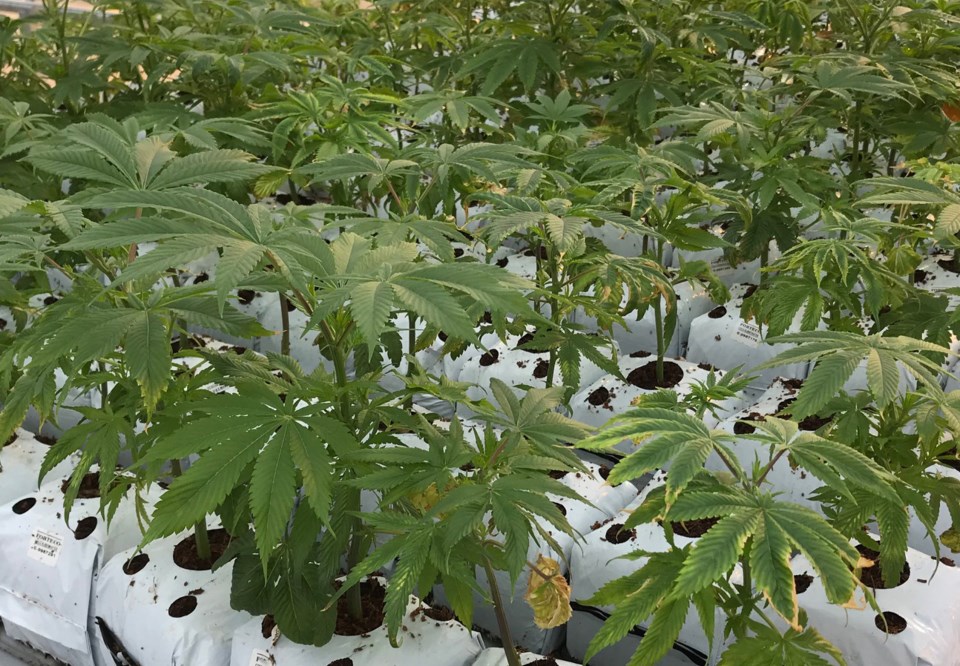A large-scale cannabis greenhouse in East Ladner will be undertaking an innovative new energy plan, reducing its reliance on natural gas.
The Pure Sunfarms operation, owned Village Farms, has renegotiated its landfill gas supply agreement with the City of Vancouver where landfill gas has been used in a cogeneration system for the greenhouse since the early 2000s.
A recent Delta staff report to council notes Village Farms wholly owned subsidiary, Village Farms Clean Energy Inc., intends to decommission the existing cogeneration system and construct a facility to process landfill gas similar to a future FortisBC system at the landfill.
“The end products will be renewable natural gas which will be sold to FortisBC and carbon dioxide which will be used in the greenhouse. This project will require BC Utility Commission, Agricultural Land Commission, Metro Vancouver and City of Delta approvals and involve new equipment at both the landfill and greenhouse sites,” the report notes.
In a news release last fall, Village Farms noted the renewed and extended landfill gas contract enables the operation to transition to a more attractive long-term business model based on the conversion of landfill gas to high-demand renewable natural gas (RNG), which will also generate food-grade liquid CO2, significantly reducing Village Farms' and Pure Sunfarms' reliance on natural gas to produce CO2 in their operations.
Vancouver and FortisBC, meanwhile, have signed an agreement for the installation of a system to clean the landfill gas so that it can be injected into the natural gas pipeline as "renewable natural gas".
FortisBC issued a design-build tender for the work which closed in February.
That facility is expected to be operational in late 2022 or early 2023.
The City of Vancouver notes that when the new project is complete and fully operational, the facility will reduce emissions by 12,500 tonnes of CO2 annually, equivalent to taking about 2,600 cars off the road every year.
Landfill gas is created during the decomposition of organic waste.
Given the environmental impacts of landfill gas, it is important to collect as much gas as possible from the landfill, the Delta report notes, adding that a target efficiency of 75 per cent is set out in the BC Landfill Gas Management Regulation.
Overall, landfill gas collection efficiency was 78.2 per cent for December 2020, and 70.1 per cent for 2020.
“A trend of increasing collection efficiency was observed in the last part of 2020 as new landfill gas wells were connected and landfill closure work was completed. Vancouver has been successful in obtaining a grant through the provincial CleanBC program to make further improvements to the landfill gas collection system which will be initiated in 2021,” the report adds.
Delta city staff members discuss various landfill plans with their Vancouver counterparts on the
Vancouver Landfill Technical Liaison Committee.



